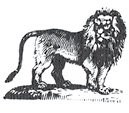The Lions of Little Rock (15 page)
Read The Lions of Little Rock Online
Authors: Kristin Levine

29

GOOD ENOUGH
As soon as I saw Liz that next Tuesday, all my words about my sister just came tumbling out.
“Wow,” said Liz when I was finished. “All I had to report was that we ate a lot of pumpkin pie.”
We were folding a bunch of WEC flyers on the big stone. The flyers were asking people to come out and vote in the December 6 election. Miss Winthrop had dropped them off the night before. “I just don't understand how you get so much done,” she marveled. I didn't tell her Liz was helping me too.
Each time the wind picked up, it blew a few of the flyers across the meadow, and either Liz or I had to run after them. As we folded and stamped all the flyers, I kept talking, telling Liz all about the Christmas float our church was doing.
Every year the Saturday before Christmas, all the churches in town (well, all the white churches) built a float and sent it down Main Street. The mayor voted on the winner, and that church got bragging rights for a whole year. Usually, everyone wanted to ride on the float and only one or two people were picked, but this year we had a theme from Matthew 19:14:
Let the children come to me, and do not hinder them; for to such belongs the kingdom of heaven.
Reverend Mitchell was going to be Jesus, sitting on a throne, and all the kids from Sunday school were going to be the children. Everyone who wanted to could ride on the float, and I was super excited.
“You'll come, right?” I asked Liz.
“Marlee, I can't.”
“Why not?”
“Someone might recognize me.”
“Can't you wear a disguise andâ”
Liz shook her head.
I knew she was right, but it didn't make it any easier. For the hundredth time, I wished we could do all the normal things friends do. Go places for fun. Have the same circle of friends. Eat lunch together at school. “How's school going?” I asked. I'd been talking so much, I was embarrassed to realize I hadn't even asked about her.
Liz grinned. “It worked! I got a notebook over Thanksgiving break. I've already written five pages, and that was just yesterday. Today Shirley asked me why I was scribbling away, but I just wrote my answer downâmaking sure she couldn't see it, of courseâand after a minute of my not responding, she left to talk to Janet. Maybe they started gossiping about me and maybe they didn't, but I was so busy writing about them, I didn't hear a word.”
“That's great,” I said.
“Tommy will be at the parade,” Liz said. “I'll tell him to wave to you. I know it's not the same as being there myself, but . . .”
“Don't worry about it,” I said. “It's good enough.”
After Tuesday afternoons with Liz, I started spending Friday afternoons with Betty Jean. It started when she baked me an extra-special triple-layer chocolate cake to say thank you for helping with Curtis. Then I did the ironing for her one week to say thank you for the cake, and she baked me a strawberry rhubarb pie to thank me for the ironing. After that, I said why don't we just help each other out each Friday, and she thought that was a great idea.
Betty Jean taught me a lot, starting with the NAACP. That stands for the National Association for the Advancement of Colored People. They filed lawsuits and stuff to help Negroes get more rights. They'd even been part of the
Brown v. Board of Education
lawsuit that had started this whole integration issue. I told her about the WEC and what we were doing with the election and how there weren't any Negroes in the group.
Betty Jean nodded. “Heard about that from Mrs. Daisy Bates.”
Mrs. Bates was what Betty Jean called an activist. Her husband owned a newspaper, and she'd spent a lot of time helping the Little Rock Nine last year.
“I can't say we're thrilled about the âNo Negroes' policy, but Mrs. Bates says Mrs. Terry is a good woman.”
What I learned most from talking to Betty Jean was that things were complicated. Take starting a private high school for the Negroes, for example. The whites had done it with T. J. Raney. At first it sounded like a good idea to me, but Betty Jean said the NAACP had asked the colored community in Little Rock not to do so.
“Why not?”
“It would be doing what the segregationists wantedâsetting up separate schools. Not to mention that it would be betraying the nine Negro students at Central who suffered through last year.”
“What happened to them?” I asked. “I mean, I know Ernest Green graduated and Minnijean Brown was expelled, but what about the rest of them?”
“Minnijean is still in New York,” said Betty Jean, “at the school she was invited to attend when she was expelled from Central last year. Carlotta, Melba, Thelma, Elizabeth and Jefferson are taking correspondence courses. Terrence moved to Los Angeles to live with relatives and go to school there, and Gloria went to Kansas City to do the same.
“You keep working with that WEC, Marlee,” Betty Jean said. “We want to move forward so that Curtis and your friend Liz will have the same opportunities you do. Without having to leave town.”
Yeah, I thought. That sounded pretty good to me.
30

THE CHRISTMAS PARADE
December 6 came and went. Three moderate candidates were elected (Lamb, Tucker and Matson) and three segregationists, so the school board was deadlocked again. Still, Miss Winthrop managed to put a positive spin on it when I saw her as I climbed onto the Christmas float. “Three is better than none. We'll get there yet, Marlee!”
I nodded.
“Besides, I've been getting a lot more threatening phone calls,” said Miss Winthrop. “I think that's a good sign we're making a difference.”
We hadn't gotten any more calls, thank goodness. Daddy hadn't said a word about it to me, but I'd seen him talking to Mr. Haroldson. I remembered Daddy saying our neighbor was a member of the segregationist Capital Citizens Council. He was also on our party line and probably didn't appreciate being woken up in the middle of the night. Maybe he'd put a stop to our calls.
In any case, I didn't want to think about that. Today was the Christmas parade and our float was impressive. There was a little hill built on a low platform, and the whole thing was being pulled by a tractor. The hill was covered with fake grass and flowers, and at the top was a throne. Reverend Mitchell sat in the chair and wore a fake beard and a long white robe, but every time he laughed, he kind of went “ho ho ho,” and he ended up reminding me more of Santa Claus than Jesus.
I settled into a spot between a fake bush and a stuffed rabbit. Not sure why there was a rabbitâmaybe it was left over from Easter? Practically everyone from our Sunday school class was there, so it was crowded. There was one space left right next to me.
“Wonderful! Wonderful!” exclaimed Miss Winthrop, clapping her hands. “You really do look like the poor masses.”
At the last minute, Little Jimmy ran up and sat down next to me. His hair was sticking up in all directions, as if he hadn't combed it. “I overslept,” he said. “Thanks for saving me a seat.”
I hadn't, but it seemed rude to say that, so I just nodded.
There was a lurch, and we started off.
The crowd got larger and larger as we drove through town. Mother and Daddy were right near the start of the parade, smiling. Mrs. McDaniels and Sally stood next to them. Sally hadn't been selected to ride on her church's float. She'd complained about it for three days straight at school. Still, I waved to her, and she waved back.
A little further down the route, I saw Curtis and Betty Jean and Pastor George waving so hard, I was afraid their hands would fall off. Next to them was Tommy, and a man and a woman who I guessed must be Liz's parents. I waved at them too.
Little Jimmy was watching me wave at them.
Then the truck turned the corner and they were gone.
Little Jimmy leaned over and whispered, “JT is saying you're still friends with Liz.”
I stared at him.
“Are you?” asked Little Jimmy.
I shook my head no.
“Oh,” said Little Jimmy, “I was hoping it was true. I liked Liz.” He pulled his notebook out and found a stub of pencil and started to write.
I wanted to tell him it was true, but when I counted 2, 3, 5, 7, what came out instead was, “What do you write in there?”
“Words.”
“About what?”
“Things that are too hard to say aloud,” said Little Jimmy.
Maybe I was the one who needed a notebook, not Liz. “What are you writing now?”
Little Jimmy gave me a funny look. I was sure he wasn't going to answer me, when he said, “How I think you're lying. And that I wish you'd tell her hi for me.”
My mouth made a little round O. “If I run into her, I will,” I stammered finally.
“Thanks,” said Little Jimmy. And he went back to his writing.
I wasn't sure what to think. Now I'd added Little Jimmy to my talking list. He'd accused me of lying, but somehow, I still got the feeling that he wanted to be my friend. After all, he'd warned me about JT.
I thought doing JT's homework meant he would keep his mouth shut. I couldn't think of any other way to get him to be quiet, except to be utterly silent on the topic myself. That way, it'd only seem like mean-spirited gossip. At least, that was what I hoped.
The rest of the parade was ruined by worrying about JT, and when it finally ended and I climbed off, guess who was waiting for me? Yep, that's right. JT himself.
“Congrats, Marlee,” JT said. “The mayor just announced your float won first place.”
I glared at him.
“What?” he said. “What did I do?”
I turned my back to him. Red was across the street, watching a colored man who was cleaning up after the parade, sweeping trash into a pile. When the man was done, he turned to get his dustpan, and while he wasn't looking, Red walked through the pile, kicking his feet until bits of paper and bottle caps were strewn across the street again. He was humming “White Christmas.”
“You missed a spot,” said Red.
The man glared at Red once, then slowly started sweeping up the mess.
When he was done, Red stepped into the pile again. “Like jumping in leaves,” he said. “Try it, JT. It's fun!”
JT walked into the street and halfheartedly kicked a bottle.
Their father, Mr. Dalton, appeared then. He was a large, beefy man who looked like his younger son, if you blew JT up with a bicycle pump to twice his size. “Come on, boys,” he said. “Let's go.” His voice was overpowering, like the smell of the schnapps my father sometimes drank after a big meal.
Mrs. Dalton hovered behind him, gray and silent. Red started singing as they walked off, but he changed the words:
“I'm dreaming of a white Central
.
”
Mr. Dalton laughed.
The colored man gripped his broom tighter and started sweeping yet again, but I could see the rage in his eyes.
31

AN UNWELCOME CHRISTMAS GIFT
We spent every Christmas with Granny in Pine Bluff. She was short like me, and wore faded dresses that she'd bought way before I was born. Her hair was the color of buttermilk, and that was her drink too, rich and comforting.
When we arrived on Christmas Eve, we put up the tree and strung popcorn chains with cranberries on the pine branches. Judy's boyfriend stopped by to help, though she told Mother and Daddy he was her
friend,
not her
boyfriend
. I thought Robert Laurence was as goofy-looking as he'd seemed in his picture, but he kept smiling at my sister, and she kept grinning back, so I guess he was okay.
Daddy had bought Granny a TV for Christmas. She hadn't had one before. “Don't need one, eitherâyou shouldn't have spent the money” is what she said. But after dinner she was the one who said, “Well, as long as that contraption's here, you might as well set it up.”
So while Mother and Judy and I hung the stockings, David and Daddy unwrapped and positioned the new set. We all sat down with a cup of hot chocolate and a bowl of roasted chestnuts to watch the ten o'clock news.
The weatherman was just starting his report. “Now, tonight we've got something extra special on radar,” he said, a twinkle in his eye. “It seems to be a man on a sled being pulled by reindeer.” He paused for a moment, examining his screen. “Yes, sir,” said the weatherman, grinning, “I do believe Santa Claus is on his way!”
Granny laughed so hard, I was afraid her false teeth would fall out.
After the news, Judy and I went up to her room. There were two twin beds and a small desk where Judy did her homework. Even though we were in the same room, I could feel the distance between us. “Which bed should I take?” I asked.
“You can have the one by the window,” said Judy.
I sat down on the worn quilt. There was a large chestnut tree just outside the window.
“Did Granny get the chestnuts from the tree?” I asked. Judy didn't respond. When I turned to look at her, I realized she was already asleep.
I could never sleep on Christmas Eve, so I sat up and gazed at the moon and stars through the branches. Even though I knew I was too old, I kept hoping to see Santa. I didn't feel tired at all, but I guess at some point I must have put my head on the pillow, because a moment later, Judy was shaking me awake. “Merry Christmas, Marlee.”
I smiled back. “Merry Christmas, Judy.” I put on my robe and followed her down the stairs.
Daddy stood at the bottom, leaning against the railing and sipping a cup of coffee. “There you girls are.”
He winked at me and said, “I think Santa might have left you something.”
There were oranges and walnuts in my stockings. Judy and I each got new socks and a new sweater (cashmereâmine was pink, and hers was green), and I got a copy of the new Buddy Holly album,
That'll Be the Day
. I was just going to ask to use Granny's record player when Daddy cleared his throat and said, “I believe there's one more present no one has opened yet.”
I glanced around the room. I didn't see any unopened boxes. “Where?”
“You have to find it,” said Daddy.
“Who's it for?” asked Judy.
“All of you,” said Daddy.
Judy and David started searching then, looking in corners and boxes and under scraps of paper. I sat still for a moment and watched Daddy. He kept glancing at the tree.
I went over and looked between the glass balls and the popcorn chains for an ornament we hadn't hung there the day before. It only took me a minute to find itâa small wooden airplane, hand-carved, with a note taped to the tail.
“Marlee's found it!” exclaimed Daddy.
Everyone crowded around me. “What does it say?” asked David.
I unfolded the note and cleared my throat: “This entitles the Nisbett Family to one airplane ride from Pine Bluff to Little Rock.”
“An airplane ride?” Mother asked.
“Oh, Daddy,” Judy exclaimed, racing over to give him a big hug. “How exciting!”
“Wow!” said David.
“An airplane ride?” I repeated Mother's words.
Daddy picked up the small wooden plane and made it soar through the air, like a little boy playing with a toy. “Flight is one of the modern miracles. Why, I tell you, there's nothing like soaring high over the trees like a bird.”
Flying meant we'd be high in the air, looking down. Kind of like standing on the top of the high dive. And that was not an experience I wanted to have again.
“An airplane ride is expensive,” said Mother. “We usually buy the children savings bonds.”
“Thought we needed something a little more exciting this year,” said Daddy.
“Are you going to come with us?” Judy asked Daddy.
“Nah, I've already been up in an airplane twice. Besides, somebody's got to drive the car back to Little Rock.”
“How about Granny?” asked David. “You want to come along?”
Granny shook her head. “I remember the first time I rode in an automobile. Seemed unnatural then to move across the ground so quickly. But flying? No, thank you. I'm not a bird, and I'm keeping my two feet firmly on the ground.” Then she smiled sheepishly. “Besides, I want to stay home and watch my new TV.”
Everyone laughed then, everyone except me. I was longing for a savings bond.